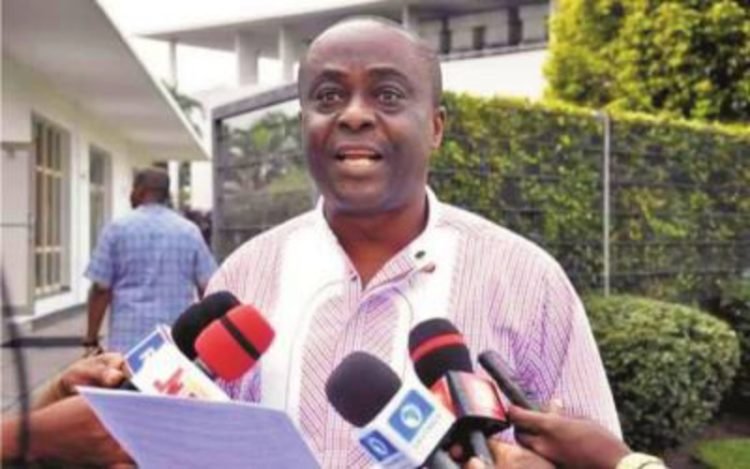The Administrator of Rivers State, Vice Admiral (Rtd) Ibok-Ete Ekwe Ibas, has called for enhanced intelligence sharing and inter-agency coordination to effectively tackle the growing threat of maritime crimes across Nigeria’s territorial waters.
According to a statement by Hector Igbikiowubo, Senior Special Adviser on Media to the Rivers State Government, Vice Admiral Ibas made the call on Monday during a courtesy visit by participants of the Advanced Defense Intelligence Officers Course 15 of 2025 from the Defence Intelligence College, Abuja. The visit took place at the Government House in Port Harcourt.
He expressed concern over the continued fragmentation of intelligence among security agencies, which he described as a major barrier to efforts aimed at addressing piracy, smuggling, illegal fishing, and maritime terrorism.
“No single entity can effectively combat maritime threats alone,” Ibas stated. “Collaboration between the Nigerian Navy, Marine Police, Customs, DSS, NIMASA, and other stakeholders is not just desirable but essential.”
The retired naval chief emphasized the importance of the maritime sector to national security and economic development, and urged for a more inclusive and technology-driven intelligence system. He also called for the involvement of local stakeholders such as fishing communities, port workers, and oil facility operators in the intelligence-gathering process.
To strengthen maritime security, he recommended improved real-time information sharing among agencies and partners; inclusion of local stakeholders in intelligence frameworks; deployment of advanced surveillance technologies and AI-based threat analysis; and deeper cooperation with neighboring countries through regional platforms such as the Gulf of Guinea Commission.
Ibas reiterated Rivers State’s commitment to supporting security agencies with logistics, joint trainings, and community-based intelligence programs. He said the state is currently reviewing a maritime security engagement strategy aimed at promoting seamless collaboration.
Earlier, Rear Admiral Effah Patrick, Commandant of the Defence Intelligence College, said the visit formed part of a field study mission aimed at deepening participants’ understanding of intelligence collaboration in maritime security operations.
He noted that the team hopes to use the findings from the visit to propose actionable reforms that will strengthen Nigeria’s maritime security architecture.
Vice Admiral Ibas concluded by urging all security and intelligence agencies to adopt a unified, transparent, and strategic approach, noting that success in the sector depends on continuous communication, trust, and strong political will.
“Security is a shared responsibility,” he said. “It requires clear policy direction and a commitment to collaboration to protect our maritime interests and national prosperity.”
















